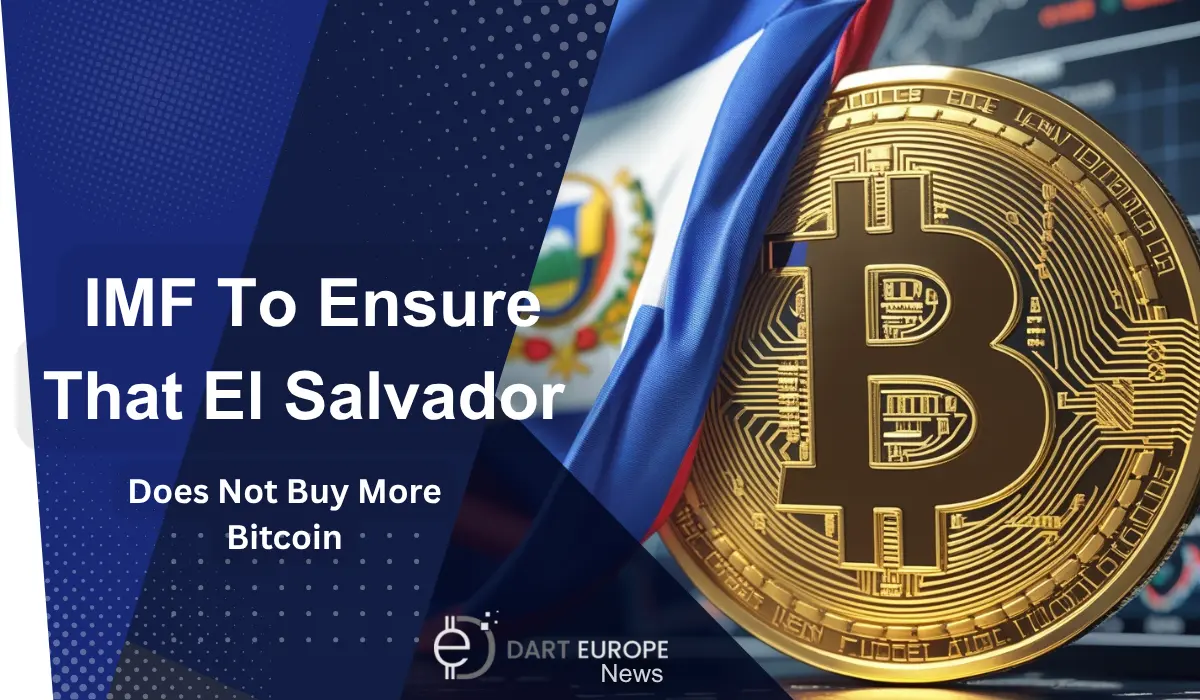The International Monetary Fund (IMF) announced on Tuesday that it will continue efforts to ensure that the El Salvador government does not increase the amount of Bitcoin (BTC) it already holds. The global financier’s decision comes after its first review of the $1.4 billion Extended Fund Facility (EFF) deal with the country, which aims to address the country’s macroeconomic and structural challenges.
IMF Approves Further Loans to El Salvador After Review of Restrictions on the Country’s Bitcoin Monetary Policy
The IMF and El Salvador struck a deal in December 2024 that would limit the country’s Bitcoin initiatives in exchange for the loan. This included making the acceptance of BTC payments voluntary for the private sector and prohibiting the government from increasing its treasury stockpile.
Other institutions, such as the World Bank, also offered to provide the nation with additional financial support, given that the government limits its Bitcoin initiatives. The entire funding package amounts to roughly $3.5 billion.
The Salvadoran Legislative Assembly moved quickly to comply with the IMF’s demands and secure the deal, amending the Bitcoin Law of 2021 to scale back its BTC monetary strategy. In January, Congress approved the bill updating regulations on Bitcoin acceptance from mandatory to voluntary for merchants and businesses across the country.
In February, El Salvador received its disbursement of $120 million upon separate approval by the IMF Executive Board.
Another key condition of the loan program was the prohibition of voluntary Bitcoin accumulation by the public sector, meaning that President Nayib Bukele’s government could no longer purchase bitcoins for its national treasury. The IMF claimed that the country’s Bitcoin reserve poses potential economic risks that are yet to materialize.
President Bukele Not Backing Out of National Bitcoin Strategy, Defies IMF’s Demands to Accumulate More Coins
However, Bukele, who has been a prominent proponent of Bitcoin, has pledged to increase El Salvador’s stash regardless of the IMF’s obligations for the loan. In March, the President wrote in an X post that his government has no plans to stop the accumulation now or in the future.
As of May 28, El Salvador holds 6,181 BTC, valued at around $674 million at current rates, in its official wallet. Earlier this month, Bukele shared a screenshot on X showing that the country’s holdings have generated over $357 million in unrealized profits since it began accumulating the assets in 2021. The bitcoins have made $69.8 million in unrealized gains so far this year, with a profit margin of 124.4%.
Last month, El Salvador’s Bitcoin National Office (ONBTC) announced that it added 32 BTC to the reserve, purchased for $650,000. ONBTC is the government agency responsible for promoting and regulating Bitcoin adoption in the country. Established in December 2022, it operates outside of the fiscal sector boundaries and has continued to buy small amounts of BTC without breaching the loan agreement.
In September 2021, El Salvador became the first country to accept BTC as legal tender. The plan, part of the President’s monetary policy, is aimed at promoting financial inclusion and freedom for the population. The country has been steadily accumulating Bitcoin for the last 3 years.
Also Read: Nebraska’s Power Grid-Focused Bitcoin Mining Law Explained
IMF will ensure that the El Salvador Government does not increase its Bitcoin Stockpile
IMF’s Western Hemisphere Director Rodrigo Valdes asserted that El Salvador has complied with its promise of not accumulating Bitcoin by the overall fiscal sector. The financier has only restricted direct purchases by the government, and not affiliated agencies, which allows the ONBTC to acquire the flagship cryptocurrency.
The IMF did not acknowledge any contradiction or friction following the review and stated that program performance has been strong, and the country has met the key fiscal and reserve targets.
The financier stated that it will continue efforts to ensure that the total amount of Bitcoin held across all government-owned wallets remains unchanged, and “consistent with program commitments.” It will also take the steps to unwind the operation of the Chivo wallet – a crypto wallet released by the Bukele government in early 2022 to increase BTC adoption across the public and private sectors – by the end of July.
Following the review, the IMF announced that it has reached a staff-level agreement with the Salvadoran authorities on the EFF arrangement. President Bukele reposted an article about the IMF’s announcement without addressing plans to restrict further Bitcoin purchases, leaving uncertainty over the future of the country’s BTC accumulation strategy.
According to Bitcoin Treasuries data, El Salvador is the sixth-largest sovereign holder of Bitcoin in the world.
At the time of writing, Bitcoin (BTC) is trading at $108,963, up 0.01% in the last 24 hours.

